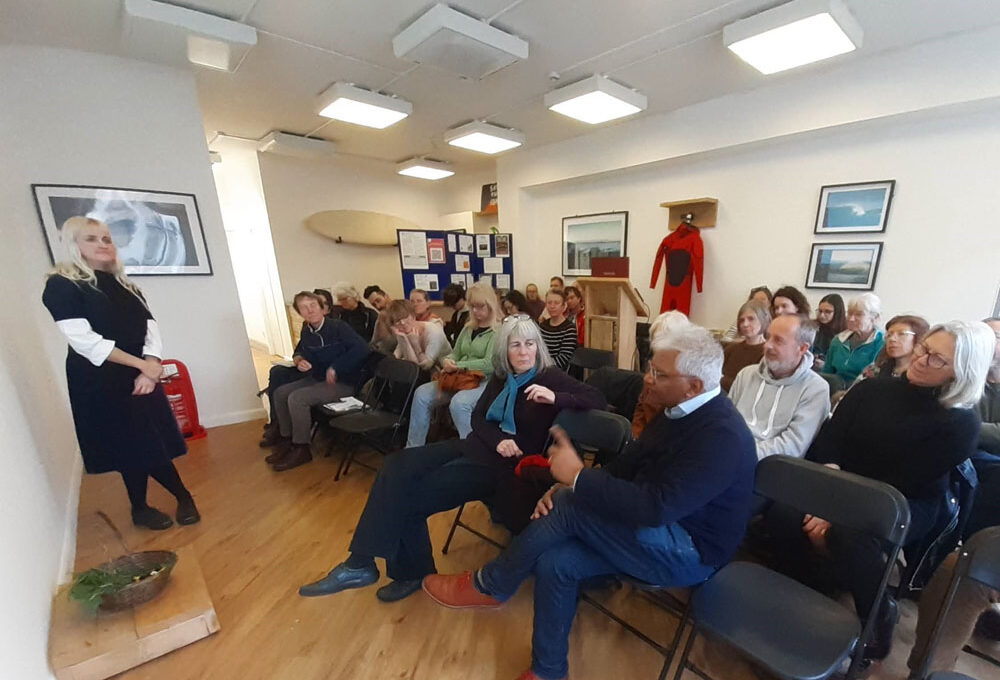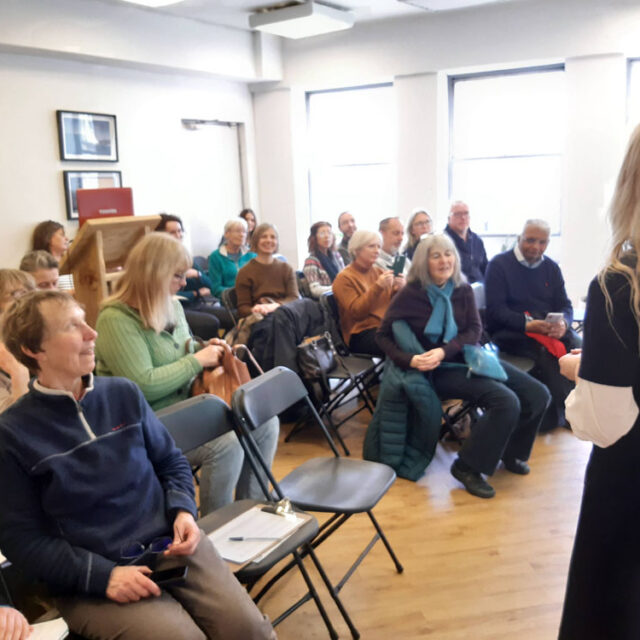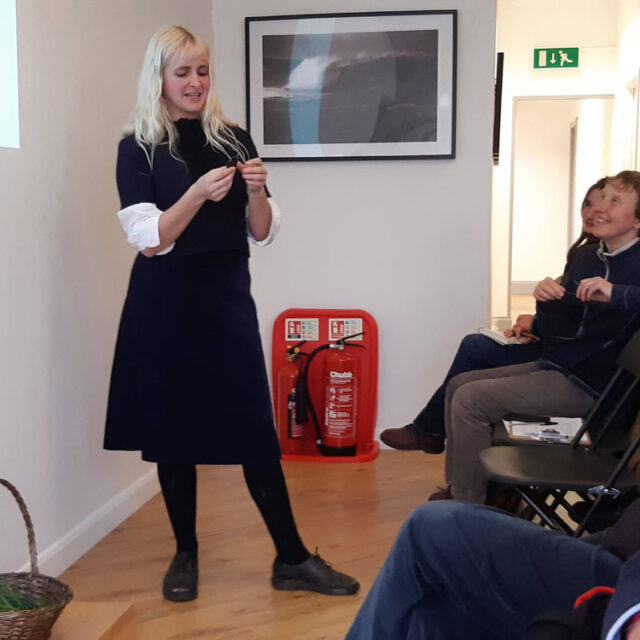
On a day in early February in a room above Finisterre, a brand whose philosophy is closely aligned to that of Transition Bath’s, Ella Milburn from Everyday Foraging explained the benefits of eating wild.
Wild foods, Ella told us, are delicious, sustainable and free. All around us, even along the city’s streets, are trees and bushes full of fruit that is ripe for the picking but which is often ignored. For example, rosehips contain 20 times as much Vitamin C than oranges, pound for pound, and can be used to make tasty syrups, jellies and cordials. Aliums, such as wild garlic and three-cornered leek, are great for making pesto or adding to soups and stews. Wild salads, like dandelion and wood sorrel, are abundant and using these plants means you may never have to buy supermarket salad again.
Ella also spoke of lesser known edible plants like Fat Hen, Himalayan Balsam Seed and Staghorn Sumac, which are all highly nutritious. But she warned us not to eat any fungi unless we can be certain it is edible. Some edible fungi that are easier to identify are field blewit, chicken of the woods and oyster mushrooms, but always double check before you try them. Ella then went on to talk about how to preserve your foraging finds by making jams, jellies, chutneys, vinegars and cordials or by using dehydration or lacto fermentation techniques.
The key message was to forage sustainably by only harvesting in areas of abundance, only taking what you need and respecting ecosystems. As well as the health benefit of eating fresh, local food, foraging outdoors gives massive mental health benefits and can also build a sense of community. When asked “Why forage?” Ella’s response is “Why not!”.
Join Ella on our upcoming foraging walks: Wild Pestos (16 March), Wild Salads (7 April) and Wild Cordials (1 May).

